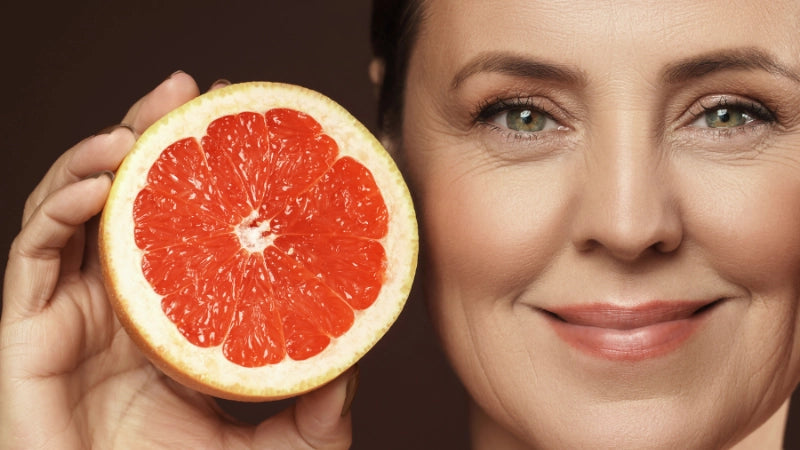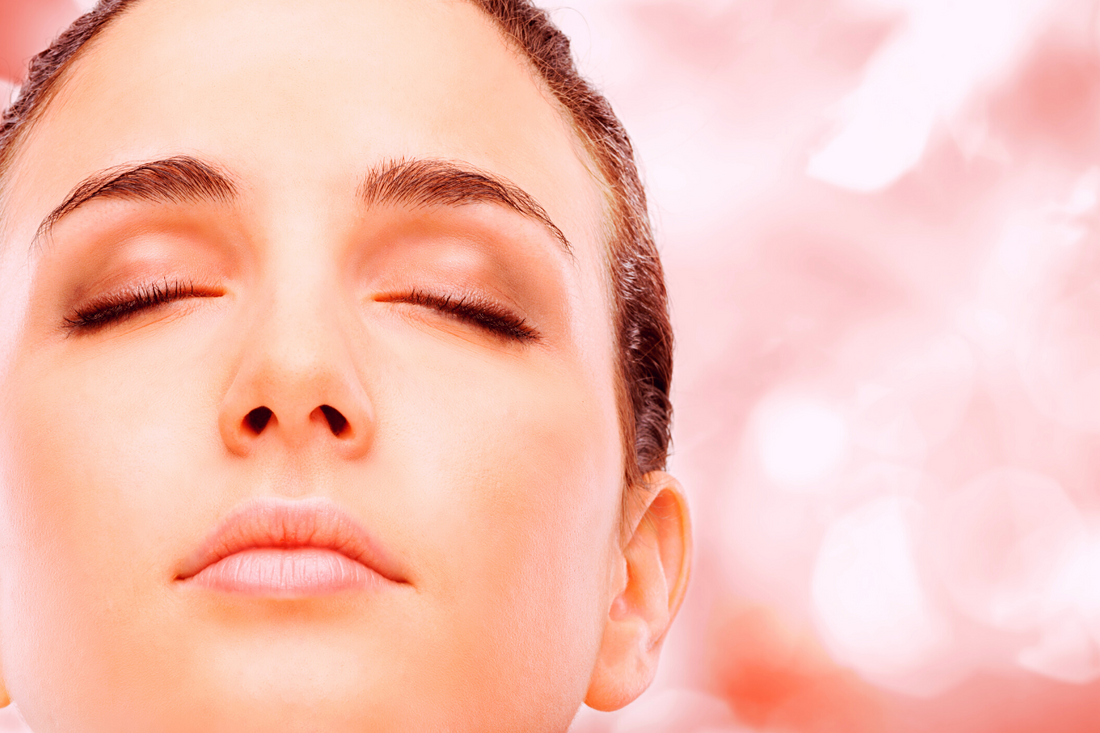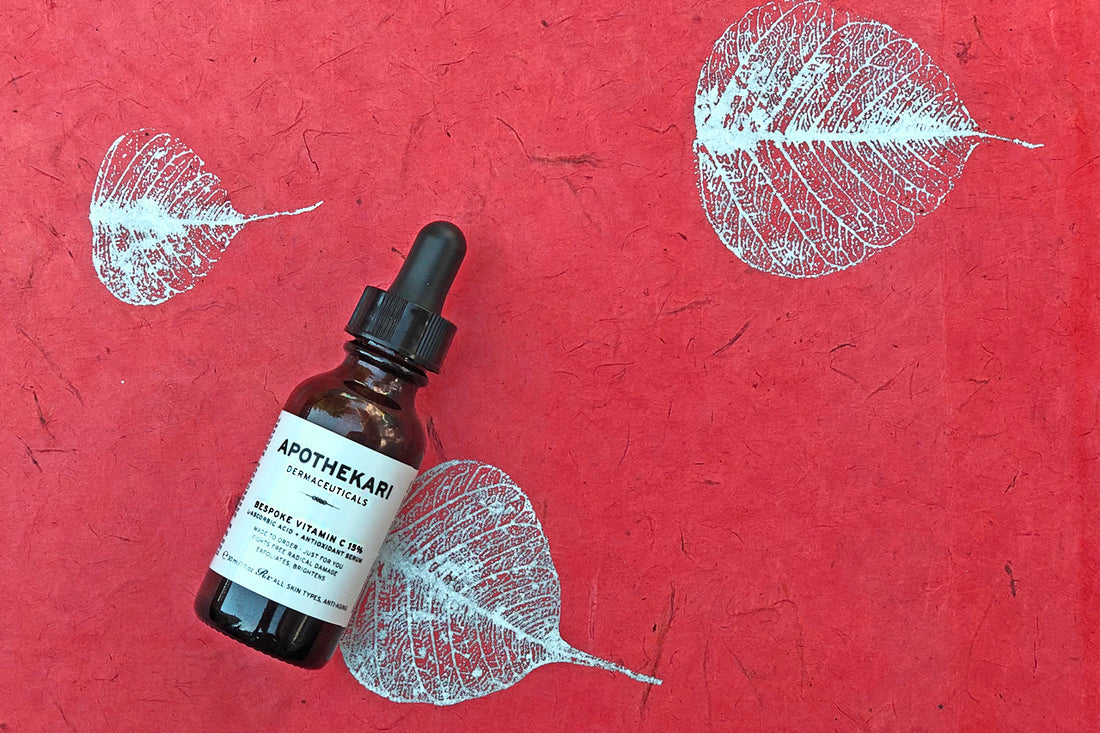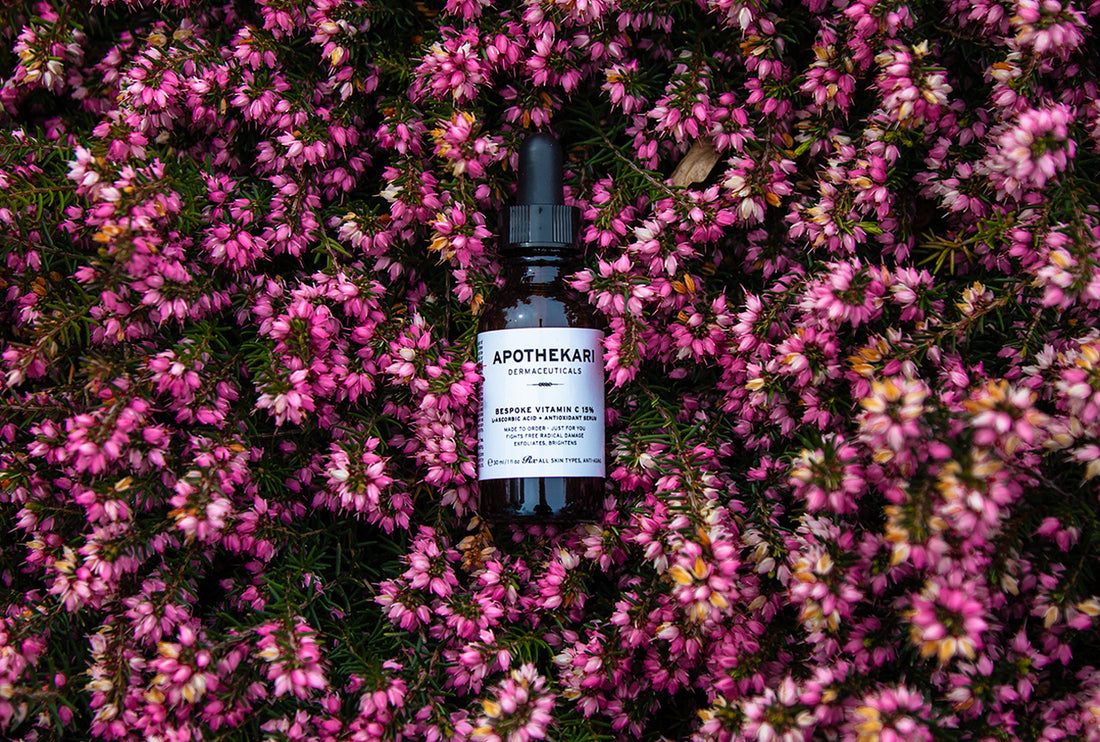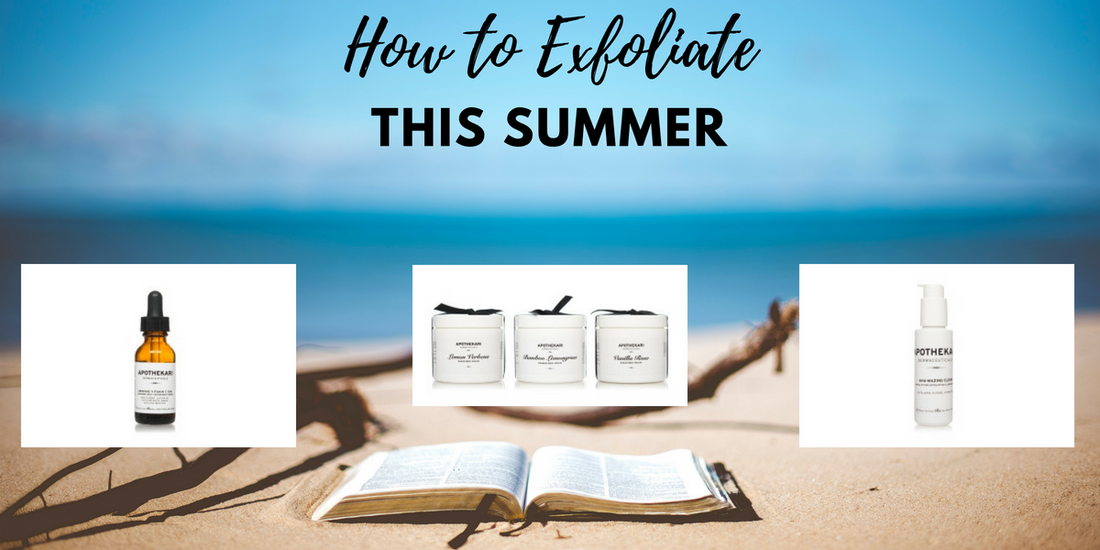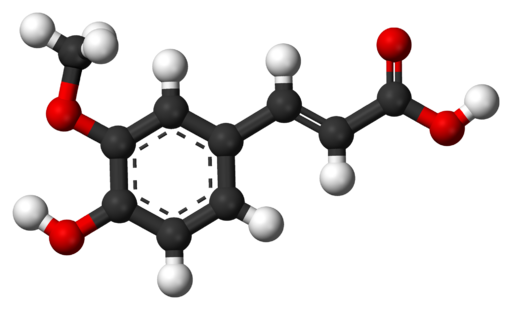Blog
9 Vitamin C Myths You Must Stop Believing
Although it’s a superstar skin care ingredient, there are many vitamin C myths circulating around when it comes to skin care. We’ve written about its benefits before, and in this post, we’re debunking the 9 most common vitamin C myths and setting the record straight. Shop Bespoke Vitamin C 15% Shop Bespoke Vitamin C 10% 1. All vitamin C is the same While the front of your bottle may read as just simply containing vitamin C, in the ingredient list, it can show up as L-ascorbic Acid (pure vitamin C) or other forms including ascorbyl glucoside, magnesium ascorbyl phosphate, ascorbyl tetraisopalmitate, etc. While they are all called vitamin C, they differ in the results they deliver. Plus, each type may be tolerated differently when it comes to your skin. So what type of vitamin C is best? We’re big fans of L-ascorbic acid, because it’s backed by the most amount of research when it comes to its benefits for skin–boosting collagen production; inhibiting melanin synthesis, which contributes to age spots; exfoliating for more glowing skin, etc. It’s what’s in our Glow Getter 15% and 10% Serums. However, if your skin is really sensitive, you may not be able to tolerate L-ascorbic acid, in which case you can look for a formulation made with a different vitamin C derivative. 2. Does vitamin C make your skin sensitive? No, it doesn’t. Vitamin C is acidic, which is why this myth may have gained traction. Vitamin C hasn’t been shown to increase sensitivity to the sun. In fact, studies show that this powerful antioxidant ingredient helps protect against free radical damage from the sun, boosting the protection you get from sunscreen. So, you can apply your vitamin C product in the a.m. or p.m. (or both), depending on what benefits you’re seeking and how it feels in your routine. Daytime application delivers antioxidative benefits, while nighttime application helps more with firming and rejuvenation–though you will also get some of these benefits with daytime application as well. 3. Vitamin C can replace your sunscreen While it’s true that vitamin C helps to protect against the sun’s ultraviolet rays, it is not—and should not be used as—a sunscreen. Vitamin C is one of the strongest defenders against free radicals– unstable molecules that damage skin–and which are caused by exposure to sunlight, pollution and smoke. Think of sunscreen as your first line of defense, helping to block damaging rays, with vitamin C as its assistant, helping to protect against free radicals that make it through the sunscreen’s protection. 4. You can become resistant to it This myth tends to circulate about many skin care ingredients; not just vitamin C. First, it’s important to understand that resistance happens when the number of receptors decrease. Since vitamin C is not active at any specific receptor in the skin, resistance can’t occur. Think of it another way. Vitamin C is not only good for your skin, it’s good for your overall health. If you’re eating nourishing foods every day, chances are that they are high in vitamin C and your body definitely isn’t becoming resistant to the benefits of the strawberries or kale salad that you’re eating on the daily. If a vitamin C formula is working for you, there’s no need to worry that it’s going to stop working. 5. Higher concentrations are always better When it comes to vitamin c myths, this may be the most common one! However, with skin care products, more isn’t necessarily better, because your skin can only absorb so much. Plus, because vitamin C is acidic, higher concentrations can end up being quite irritating. In fact, studies have shown that concentrations of L-ascorbic acid greater than 20% can actually be damaging to skin. As long as you are using a vitamin C treatment from a reputable company, you can feel confident that they’re following guidelines for skin care ingredients that have been established in clinical studies. Whether it’s 0.5%, 1% or 10% doesn’t matter–what matters is that the amount used has been researched to deliver results, without harming skin. 6. Vitamin C can’t be used by sensitive skin Vitamin C can be suitable for all skin types. Is vitamin C ok for sensitive skin? The trick is to find the right type of vitamin C for you. For example, while L-ascorbic acid is the most widely researched–and potent–form of vitamin C, it can also be irritating to sensitive skin. If that’s the case, you can opt for a lower concentration or use it less frequently. If that doesn’t work, then try a form that isn’t so acidic. There are many to choose from, including tetrahexyldecyl ascorbate, magnesium ascorbyl phosphate and ascorbyl glucoside. 7. Vitamin C can’t be combined with other acids, retinol, or niacinamide When it comes to vitamin C and niacinamide, there’s an outdated study that shows the two can potentially react to form nicotinic acid, which can cause skin irritation. However, this potential exists only when pure ascorbic acid and niacinamide are combined together at very high temperatures. Thankfully, it’s not something we need to worry about when it comes to skin care. In fact, pairing these two ingredients can be a winning combination, especially for tackling hyperpigmentation because the two work in different ways to combat discoloration: vitamin C inhibits the production of the pigment responsible for age spots, while niacinamide helps prevent the transfer of the overproduced pigmentation within cells. What about combined with acids or retinol? Vitamin C can be used with retinol, but there is a risk of skin irritation when they are used together. If you want to include both in your skin care routine, we recommend spreading out your actives between your morning and night routine or even between days or weeks. ie vitamin C in the morning and retinoid at night. Can you use vitamin C and AHA (or other acids) together? As with retinoids, your skin can become irritated with these two ingredients are combined. Space them out (morning/night) or alternate the days that you use one or the other. 8. Vitamin C can discolor your skin Vitamin C actually does the opposite! It inhibits the production of tyrosinase, an enzyme that is involved in the production of melanin, the pigment that gives skin its coloring—and which is associated with age spots and hyperpigmentation. The end result is brighter and more evenly toned skin; not discolored skin. 9. DIY vitamin C is a good idea While it’s possible to mix up your own vitamin c serum at home, there are a couple of things to be mindful of: Foods high in vitamin C, like lemon and other citrus juices can lead to phytophotodermatitis, a painful reaction, that can cause skin to blister and break out in drak patches. Don’t do this at home, no matter how many internet searches tell you it’s safe and effective. If you mix your own vitamin C serum, be sure to mix it fresh every day. Vitamin C oxidizes very quickly resulting in a product that may not only be ineffective, but also harmful. Plus, water-based products need preservatives to ensure they don’t become contaminated with baceteria, mold or fungus. Even if refrigerated, they won’t stay fresh for long. We like to think that this is one thing best left to the experts. Did we cover all the vitamin C myths you may have questions about? Let us know in the comments so we can get to more myth busting for you.
Learn moreHow To Look After Summer Skin | 7 of the Best Tips
We’re sharing 7 of the best tips to help you keep your summer skin looking radiant and beautiful this season and beyond. If you love the summertime as much I do, this is a must read! Shop All Apothekari How Can I Care For My Skin in the Summer? 1. First, Put on Your Sunscreen Remember when you were 10 and your mom sent you outside to play with your friends during summer break? ALL DAY LONG (you could only come in to pee and if you were lucky, maybe she’d give you a popsicle?). And sunscreen wasn’t a thing? Yeah, me too. I didn’t suffer too badly, because I don’t really burn, but I do remember some very pink faces in the neighborhood. More than the pain though—and we probably didn’t know it back then—that sunburn caused significant skin damage, increasing the chances of dark spots, roughness and dry, wrinkled skin. If you suffered a burn, it also increased your risk for skin cancers such as melanoma. This is why it’s so important to protect your skin against sun damage. The first step in protecting summer skin is to guard it from harm that can be caused by exposure to ultraviolet rays: Find and use a broad spectrum (minimum SPF 30) sunscreen that protects against both UVA and UVB rays. Don’t forget to apply to your ears, lips and tops of feet – most of us miss these areas. Seek out shady places whenever you’re out and about, especially during the sun’s peak hours between 10 am and 4 pm. Cover up with long sleeves and hats when you can. The sun can also burn your eyes, harming the retina, lens or cornea so make sure to protect your peepers with sunglasses and hats. 2. Antioxidants Rescue Summer Skin! While sunscreen is essential during hot weather, you may not know that you can amp up its protection. Meet sunscreen’s partner in crime, antioxidants. Sunscreens help to reduce the risk of skin cancer and premature skin aging, but you get even better protection if you combine sunscreen with an antioxidant. Even if you wear sunscreen every day, you’re not going to get 100% protection from the sun’s rays. An SPF 50+ sunscreen equals about 98% protection from UVB rays. Plus, most of us don’t apply nearly enough sunscreen (or as often enough) as we should to get the protection stated on the label. Just the smallest amount of residual UV exposure can trigger the development of free radicals, unstable molecules that can accelerate skin aging. Like unprotected sun exposure, free radicals can lead to wrinkles, dark spots, loss of firmness, and other issues. You may not be able to see or feel free radical damage, but it’s happening, just at a deeper level and the results will show up over time. Antioxidants help make up for what sunscreen can’t do – they protect against the free radical damage that exposure to sunlight causes. So even if you haven’t applied enough sunscreen—or forget to reapply—antioxidants neutralize the free-radical damage that’s caused by sun exposure. They also help defend skin from other sources of free radicals, such as pollution, smoke, high-energy visible (HEV) light and blue light from your cell phone. There isn’t a single BEST antioxidant but there are lots of amazing ones. Vitamins C and E are two of the most widely studied, but there are many others that also offer benefits, including ferulic acid, green tea, resveratrol and coenzyme Q10. When it comes to antioxidants, the more the merrier. A highly effective combination is available in our Bespoke Vitamin C Serum. Apply it every morning underneath your sunscreen. It not only protects, but will also help to deliver an irresistible glow. Ready for healthy, glowing skin in your 40s and beyond? Click here to download our FREE guide containing 5 tips to help you feel good and look your best as you ride the waves of your body’s changes. Treat the skin on all your body’s places with safe, effective products plus advice that will allow you to age with confidence, comfort and grace. 3. Correction 101 Sun damage can occur even with the consistent use of a sunscreen and an antioxidant. This is why you need to incorporate a retinoid into your routine. Derived from vitamin A, retinoids help to fight against skin damage associated with the sun. They’ve been shown to help boost the production of collagen and elastin for firmer, more supple skin; reduce the appearance of fine lines and wrinkles; brighten skin tone, reduce the appearance of dark spots and leave skin feeling smoother overall. Our A is for Anti-Aging Serum contains gentle yet highly effective retinaldehyde, making it suitable for almost all skin types. The formulation also reduces redness and increases skin’s moisture content. It’s no wonder we’ve dubbed A is for Anti-Aging, ‘a miracle for skin’—if one existed. 4. Summer Skin Needs Lighter Moisture Depending on where you live and your skin type, you may need to swap out your moisturizer. If it’s especially humid and your skin isn’t feeling dry, you may find that you don’t need a moisturizer—your morning serum and sunscreen may be all that you need. If you’ve been using face oils, you may want to give them a rest until cooler, drier weather arrives. Our Daily Infusion Moisturizer plumps, protects and refreshes skin without any hint of oiliness. It’s THE perfect year round moisturizer and ideal for summer skin. 5. Drink Up! Water of course! Drinking more water can’t fix dry skin but it does help it to function well by delivering nutrients to it. Make your daily hydration that much more special with ‘spa water’—cut up some fruit, add in some herbs and some ice. The flavors infuse the water, giving it a wonderful lift. 6. How Can I Get Glowing Skin in Summer? (Hint: Exfoliate!) Dead, dry skin cells that sit on the surface can leave your skin looking dull and lifeless. If you’re using our Bespoke Vitamin C Serum, you may be able to skip a facial exfoliant because the low pH L-ascorbic acid exfoliates. However, if you’re after additional exfoliation, add in a treatment that contains an alpha hydroxy acid like glycolic acid, lactic acid or malic acid. Use it once or twice a week at night, making sure to skip your retinoid treatment on those nights—the combination may be too much for most skin types. And, don’t forget your body—see tip 7 for how to take care of the rest of your skin. 7. Don’t Forget ALL Your Body’s Places We obsess over our faces but often neglect the skin on the rest of our body. Pay attention especially to these areas: Feet. Which can get rough from going barefeet or wearing sandals. Exfoliate with a scrub or pumice and slather on a moisturizing treatment like our Shea Body Butter or Lemon Rose Body Oil to lock in hydration. Neck. Shorter necklines leave our neck exposed to damage, much like our faces. Make it a habit to apply sunscreen and follow the same regimen as you do for your face. It’s important year round, but especially during the summer. Back of Hands. Much like your neck, your hands are prone to sun damage. Give them the same amount of care as your neck and face. Moisturize regularly, especially after showering or bathing or washing dishes. Taking care of the skin on your body is fantastic way to slip in some me time, ensuring that you aren’t neglecting your self care. Here’s to a safe and healthy, happy summer!
Learn more7 Reasons Why You've Got Dull Skin. Let's Get Your Glow Back
If you have dull skin, you need to know that all is not lost. Dull skin is fixable! In this post, we’re diving into why your skin is dull and sharing tips on how to get your radiant glow back. Vitamin C Matters! Vitamin C is one of the ingredients most well known to help revive dull skin into radiant, glowing skin. It is found in our skin’s outermost layers (epidermis and dermis) but it depletes as we get older. Sun damage and pollution can accelerate this decline, leading to skin that looks and feels dull, uneven and less firm. Replenish it with our Bespoke Vitamin C Serum, available in two concentrations 10% (for sensitive skin) and 15% (for normal/tolerant skin). Shop Bespoke Vitamin C 15% Shop Bespoke Vitamin C 10% Why Does My Skin Look Dull and Tired? 7 Reasons 1. You’re Drowning In Dead Skin Cells I know, ewww….You may not know it, but we shed millions of skin cells each day. Most of them just stay put at the top of our skin’s surface, acting like a fine layer of dust, leaving us with skin that looks dull and grey. The Fix? Exfoliate. Remove the dead, dry skin cells so that the new ones can shine through. Ingredients like alpha hydroxy acids and vitamin c (l-ascorbic acid) found in our Bespoke Vitamin C Serum, help to dissolve the dead skin cells, leaving you with brighter looking skin. Scrubs work too (manual exfoliation), but it’s easy to apply too much pressure so we recommend sticking with treatments (like serums) that ‘dissolve’ the skin cells instead. 2. Pollution Every time we step outside, we’re exposing our skin to polluted air, which contains dirt and gases like nitrogen dioxide, ozone, carbon monoxide and sulfur dioxide, which are harmful to skin. These can lead to the development of free radicals. Over time, free radicals damage skin, leading to wrinkles and fine lines plus pigmentation. This uneven skin tone and texture, diffuses light and leaving skin looking dull. The Fix? Wash your face every night to remove dirt and makeup, which can damage skin while you sleep. 3. You’re Stressed Out Stress is inevitable for most of us. It has an impact on our overall wellness and also on our skin. Prolonged stress not only makes you more tired over time, it also impacts the levels of the stress hormone cortisol, along with adrenaline. Increased levels of these hormones caus our heart rate to go up, our blood pressure to rise and sugar to accumulate in our bloodstream. Cortisol increases oil production, leading to acne or sensitive skin. Plus, its presence can increase the break down of skin components like collagen and elastin leading to wrinkles, lines and you got it, dull skin. The Fix? Getting stress under control will help, so try to do that as much as you can. When it comes to your skin, focus on gentle cleansing (our Cloud Nine Foaming Cleansing Crème is a great option) along with moisturizers and treatments rich in antioxidants, and other skin nourishing ingredients to help combat the impact of stress. 4. Blame Your Hormones Fluctuating hormone levels, like those we experience through puberty and menopause, can affect our skin’s appearance. Beyond acne and blemishes, menopause leads to a dip in estrogen levels, which can result in skin that’s drier, leaving it looking dull and lackluster. The Fix? Switch to more hydrating moisturizers and and apply them more often if needed. Consider adding in oils like our Antioxidant Face Oil. Also, lifestyle changes can help to help combat the dryness. More in this post. 5. Your Skin is Dehydrated Without enough hydration, dull skin often follows. Moisture helps to plump up skin cells, leaving them looking more radiant. This isn’t about drinking more water, because increased water consumption can’t make it’s way to dry skin. The Fix? Topical treatments that contain both humectants (like glycerin and hyaluronic acid), attract moisture into skin and emollients (like plant oils or fatty alcohols), soften skin, leaving skin looking less dry and dull. If your skin is particularly dry, add in occlusives (like lanolin, oils and butters) to trap in moisture. 6. Choose Your Drinks Carefully Alcohol and caffeine are dehydrating and can lead to skin that is dry and dull. The Fix? Enjoy them in moderation, swapping out for herbal teas, and non-alcoholic or low alcohol alternatives when you can. 7. Skipping out on Sunscreen UV rays are one of the biggest causes of skin damage. Over time, unprotected exposure to the sun’s rays can damage your skin’s protective barrier, leaving skin looking tired, dark and dull. The Fix? This one’s pretty straightforward – wear your sunscreen every day! What Products Are Good for Dull Skin? If the solutions above weren’t enough, consider the following: 1. Add a Serum to Your Routine Serums are often formulated with high concentrations of active ingredients to help brighten, boost hydration and diminish the signs of aging. Vitamin C serums brighten skin tone, while retinoids help to boost collagen production, pushing away old skin cells and allowing fresh, new ones to come to the surface. There are many forms of vitamin C to choose from – all are great antioxidants but have different effects. L-ascorbic acid has the most skin-related research of any form of vitamin C. Other beneficial forms supported by research include tetrahexyldecyl ascorbate, sodium ascorbyl phosphate, ascorbyl palmitate, magnesium ascorbyl phosphate, ascorbyl palmitate and ascorbyl glucoside. 2. Ditch the Aggressive Cleansers Avoid harsh scrubs and drying soaps, which can irritate skin leaving it looking red, tight and flaky. 3. Stick With Lukewarm Water Hot water can strip away natural oils, disrupting the skin’s protective barrier and leaving it open to dryness (hello dullness) and irritation. 4. Consider a Procedure Topical treatments and lifestyle changes can go a long way but sometimes you may need a bit more help from your dermatologist. Check in with one if you need more help.
Learn moreThis Is How to Emerge With Glowing Skin
Glowing skin may be something most of us aspire to, but it’s probably not top of mind right now. We can’t really change what’s going on around us, but, we do have control over how we spend our time. Here at Apothekari, we’re taking time to learn new things, catch up on our reading & engage in some self-care, including taking better care of our skin. These are things we definitely won’t regret when we’re allowed to emerge back into society again! In this post, we’re diving into how vitamin C, found in our Bespoke Vitamin C Serum, helps to deliver youthful and glowing skin. Shop Bespoke Vitamin C 15% Fade Dark Spots For Glowing Skin A powerhouse skincare ingredient, vitamin C interrupts the process that leads to the formation of melanin, which is responsible for skin discoloration like dark spots. Incorporating it into your skincare routine on a regular basis can help to prevent them from forming in the first place AND help to fade them, without altering your skin’s normal coloring. Exfoliate for the Glow In addition to helping prevent dark spots from forming in the first place, L-ascorbic acid, the form of vitamin C found in our Bespoke Vitamin C Serum, can also help to remove them. L-ascorbic acid is a mild exfoliant and works to lift away the discolored dead cells that sit on our skin’s surface. The result? Clearer, more evenly toned and glowing skin, in as little as a few days. Free Radical Damage Control Vitamin C belongs to a class of ingredients known as antioxidants, compounds that help to protect skin from harm caused by free radicals. Daily exposure from things like the sun, pollution and smoke, all trigger the formation of free radicals, unstable molecules that can damage skin cells leaving it looking dull and lifeless – the opposite of glowing skin! Glowing Skin & More! Vitamin C also stimulates collagen production, helping to keep skin looking firmer; is anti-inflammatory, helping to even out the redness associated with rosacea and it can also help skin to heal faster. We use L-ascorbic acid in our Bespoke Vitamin C Serum because it’s the form of vitamin C with the most research to back up its skin benefits. It’s combined with other antioxidants, including ferulic acid and vitamin E, which increase its ability to protect against sun damage. Apply it every morning under your sunscreen and get ready for beautiful, healthy and glowing skin!
Learn more3 Foods to Avoid For Your Skin During The Holidays
Some foods are just better for our health than others – here are 3 foods to avoid when it comes to your skin and your overall wellness during the holidays this year. While the relationship between flawless, glowing skin and diet isn’t yet crystal clear, there is some evidence linking specific foods to skin flare-ups and other nutrient-rich foods to skin benefits. Learn more in this post. SHOP RADIANT SKIN SET What Food Should Be Avoided For Skin? (Sugary Treats!) Beautifully decorated cookies, holiday chocolates & decadent macarons are in abundance at this time of year. Though they may taste good going down, over consumption can lead to glycation, resulting in the formation of advanced glycation end products (AGEs), which can induce free radical damage and cause deterioration of the skin. The end-result? A loss of elasticity and the development of fine lines and wrinkles. Sugar has become one of the most vilified foods for its negative impact on overall wellness, including our skin’s appearance. We’re not saying never, but try to limit your servings when possible. Or, indulge a sweet tooth with a small amount of fresh fruit or dark chocolate. 2 More Foods to Avoid: Alcohol & Salty Foods Alcohol and salty foods cause dehydration, which can leave skin looking pasty, puffy and more visibly wrinkled. Boozy holiday cocktails often contain a lot of sugar (see above), which can exacerbate the signs of skin aging. These are two foods to avoid when it comes to your skin; moderation is key. Reach for the water, a mocktail or a spritzer when it comes to beverages and load up on crudites instead of the chips. These choices will help to ensure you stay hydrated while nourishing your body with essential vitamins and minerals. What Foods Make Your Skin Better? It’s well known that certain nutrients are essential to good health. Minerals like magnesium and calcium; vitamins A, B, C and D; omega-3 fatty acids; lean protein; fibre; micronutrients…the list goes on. For healthy skin, the research isn’t so clear. But, given that it’s the body’s largest organ, it makes sense that what’s good for the body, is (in general) what’s good for the skin. A diet that keeps your inside healthy will help deliver glowing and beautiful skin as well. The occasional splurge isn’t going to ruin your complexion, but a consistently poor diet is bound to have implications. Several experts whose expertise straddles both nutrition and dermatology are here to tell you which foods may support smooth, healthy skin, and which foods are more likely to lead to rashes, blemishes, and breakouts. Try to Maintain Your Skin Care Routine Wherever Possible Work parties, family gatherings and extra social outings put temptation in front of you during the holidays and it’s only human nature to indulge. Have a sugar cookie, enjoy a glass of eggnog and try that new cheese your cousin bought just for you. It’s important to enjoy life too! While late nights and an over extended social calendar can disrupt routines, try to exercise, get enough sleep and choose healthy food options when you can for the health of both your skin and your body. When it comes to your skin, don’t neglect to cleanse your face before falling into bed. This will help to remove dirt and makeup that can lead to clogged pores and breakouts. Besides cleansing, if there are only two things you can remember to use, make it the serums in our Radiant Skin Set. It includes our Bespoke Vitamin C Serum (for morning) and our A is for Anti-Aging Serum (for night), which will help to protect against inflammation and free radical damage and deliver the glowing skin you want to show the world for the holidays! SHOP RADIANT SKIN SET Happy Holidays All!
Learn moreHow To Get More Radiant Skin
Glowy, radiant skin is a sign of healthy skin – a look that that we all aspire to. Consistently using the right combination of products is key to radiant skin. Learn more in this post. SHOP RADIANT SKIN SET What Robs You of Radiant Skin? Lack of sleep, stress, aging and even what you eat can rob your complexion of its radiance. Skin that looks dull and tired can become luminous and glowing by using the right products along with some expert tips. Here’s how to achieve radiant skin. 4 Tips for Radiant Skin Cleanse. Start with a clean ‘canvas’ by removing dirt including oil, pollution and make-up that can leave skin looking dull. Choose between two foaming cleansers to suit most skin types: AHA-Mazing Clean Cleansing Gel – Exfoliate, cleanse and hydrate with this foaming cleansing that soothes skin and senses. Triple combination of alpha hydroxy acids (AHAs) and a refreshing mint scent. Cloud Nine Foaming Cleansing Crème – Clean, moisturize and protect skin with this gentle, foaming cleanser. Rich with antioxidant and anti-inflammatory ingredients and ideal for aging and sensitive skin. Exfoliate. Nothing strips away your glow more than having a layer of dry, dead skin cells sitting on your skin’s surface. Exfoliation helps to remove these cells and brightens skin almost immediately. You can exfoliate physically with a scrub or chemically with an acid. When it comes to facial exfoliation, we lean towards chemical exfoliation, which only penetrates through the skin’s uppermost layer. Scrubs and polishes are more prone to aggressive use, which can lead to skin irritation. In addition to our AHA-Mazing Clean Cleansing Gel, which exfoliates and cleanses, our Bespoke Vitamin C Serum, provides light exfoliation. Brighten. As we age, skin can become unevenly toned due to age spots, melasma, etc. The following ingredients can brighten skin: Niacinamide. Lightens skin discolouration and fades age spots by decreasing the number of melanin transferred to pigment-producing cells (melanocytes) to skin cells by more than half. Find niacinamide in A is for Anti-Aging, where it is combined with Phenylethyl Resorcinol, another skin brightening agent and retinaldehyde, for the ultimate in age prevention properties. Vitamin C. Found in our Bespoke Vitamin C Serum, it brightens skin by disrupting the production of melanin, a skin pigment that causes discolouration and age spots. Because the two ingredients above do so much to improve skin’s glow, we’ve combined A is for Anti-Aging and our Bespoke Vitamin C Serum into the Radiant Skin Set. When used together regularly, these serums will help to illuminate your complexion. Expect to see results within a few weeks and optimal results in about three months. Other ingredients that can help to brighten skin include lactic acid, arbutin, kojic acid and licorice. Hydrate. Dry and dehydrated skin looks dull and may even appear more wrinkled. Although you may not need a dedicated moisturizer, it’s important to incorporate products that can help to replenish and lock in moisture. In a previous post we discussed how to choose a moisturizer and our Daily Infusion Moisturizer provides a perfect balance of the 3 types of ingredients needed to keep skin hydrated. Fake It Till You Make It! While you’re waiting for results from topical treatment to kick in, you can rely on make-up, which helps to deliver an instant glow. Look for products that contain minerals like mica, which reflect light to deliver radiant skin allover.
Learn moreThis Serum Can Fight Free Radicals
Learn how to fight free radicals, molecules which can damage skin, by adding this serum to your daily skincare routine. Shop Bespoke Vitamin C 15% What Are Free Radicals? ‘Free radicals’ AKA Reactive Oxygen Species (ROS) impact our health, including that of our skin. They are created in our bodies as a result of exposure to certain different physical or chemical conditions or illness, including pollution, UV rays, some pesticides and smoke along with the consumption of excess alcohol and some fried foods. Free radicals are thought to contribute to diseases such as heart disease, autoimmune disorders (like rheumatoid arthritis), diabetes and degenerative diseases (Huntington’s or Parkinson’s disease) as well as cancer. Age-related changes in our appearance, including a loss of skin elasticity, wrinkles, graying hair, hair loss, and changes in hair texture are also thought to be related to free radicals. That’s why it’s important to fight free radicals. How to Fight Free Radicals in Skin Once free radical damage starts, it’s thought that a ‘cascade’ of damage occurs, producing more free radicals and speeding up the process of cell damage. This buildup of free radicals offers one explanation for why even healthy bodies age and deteriorate over time. Antioxidants are highly stable molecules, which donate an electron to free radicals, reducing their path of destruction and thereby lessening the damage they cause. Because they are so stable, antioxidants can do this without becoming free radicals themselves. Our bodies make several important antioxidants – glutathione, catalase, superoxide dismutase – and we can help to fight free radicals even further by consuming antioxidant rich foods or by applying them topically. One single antioxidant isn’t enough; we benefit from a combination of including the following: Vitamin C Vitamin E Ferulic acid Green Tea Resveratrol Coenzyme Q10. Apothekari Bespoke Vitamin C Serum is made with a combination of antioxidants and designed to fight free radicals, promote collagen synthesis, brighten skin tone and improve the appearance of aging skin. It is available in a 10% (sensitive skin) or 15% concentration (non-sensitive skin) and each bottle is made fresh to order, guaranteeing its potency. Apply to skin daily every morning to fight free radicals leaving skin looking more youthful and radiant. Top Tip: Eat Your Antioxidants While the topical application of antioxidants is beneficial to skin, we can’t discount the importance of nutrition. Fruits, vegetables and spices including onion, garlic, turmeric, cinnamon and ginger are a major source of antioxidants, which can help to reduce the risk of developing certain diseases. Enjoy the variety; it is the spice of life after all!
Learn more3 Essential Skin Care Products for Summer
3 essential skin care products, found in our Anti-Aging Set, are important to protect and perfect skin this summer and year-round. (*Shade SPF 30 and our Anti-Aging Set have been discontinued. Our Radiant Skin Set includes the same 2 serums that were included in our Anti-Aging Set.) SHOP RADIANT SKIN SET Protect Skin & Prevent Damage Hands up if you love the sun! Sunshine and the sun’s heat make us feel good. The sun’s rays may be great for our mental health, but they’re not so kind to our skin. In fact, it’s estimated that unprotected exposure to the sun’s ultraviolet rays are responsible for more than 80% of skin damage. Regular sunscreen use along with topical antioxidants help to protect skin and prevent damage caused by the sun and our environment. Sunscreens, like Shade SPF 30 help to block the UVA and UVB rays that are responsible for sunburn and skin aging. Shade SPF 30 is a naturally safe, mineral-based zinc oxide sunscreen that offers broad spectrum, non-whitening sun protection and should be used every day, year round. Antioxidants work to protect skin from the free radicals that are generated by exposure to UV rays, pollution, smoke and other environmental factors. Free radicals are unstable molecules which harm skin and accelerate aging by destroying substances including collagen and elastin, proteins which are important to maintain youthful looking skin. Our Bespoke Vitamin C Serum is made to order and contains L-ascorbic acid plus additional antioxidants to not only protect skin, but also boost collagen production, brighten skin and moisturize. Essential Skin Care Products To Perfect Skin While preventing skin damage is the first step in keeping skin healthy, it’s also important to support skin with treatments that help to repair and perfect it. This is where retinoids come in. Retinoids, like retinaldehyde, found in our A is for Anti-Aging Serum, work by ‘turning on’ genes and cells that are involved in collagen production. Used regularly, this essential skin care product can help to reverse sun damage and promote healthier skin including: Reduce the appearance of wrinkles and fine lines Brighten skin Increase skin moisture content and soothe skin irritation Assist in management of acne and blemishes (retinaldehyde has antibacterial activity) A bonus of A is for Anti-Aging is that retinaldehyde is an effective and gentle retinoid, making it suitable for most skin types. 3 Essential Skin Care Products in One Set Because these 3 products – a sunscreen, an antioxidant treatment and a retinoid – are fundamental to great skin, we’ve combined them into our Anti-Aging Set, which currently features a $40 gift certificate. Summertime Skin Care is Year Round Skin Care While we tend to focus on sun protection in the summer, it’s important all year. The sun emits more UVB rays during the summer (UVB rays are responsible for burning) but emits the same amount of UVA rays regardless of season. UVA rays penetrate deeper than UVB rays and are the ones responsible for skin aging including the risk of developing some types of skin cancer. Consider sunscreen the number one essential skin care product and use it every single day!
Learn moreBeat Sun Damage This Summer
Sun damage, caused by unprotected exposure to the sun’s ultraviolet (UV) rays, is one of the main factors involved in aging skin with research showing that it is responsible for more than 80% of the damage. In this post, learn how a combination of the right products (found in our Anti-Aging Set, and which currently features a $40 gift certificate to apply to a future purchase), plus safe sun habits can help you to beat sun damage and minimize its effects, when it occurs. Our Anti-Aging Set has been discontinued, but consider our Ageless Skin Set. Shop Apothekari Ageless Skin Set The Sun is Your Skin’s Worst Enemy One can’t deny how good sunshine feels on our skin. Yet, UV rays are the primary cause of premature skin aging and skin cancer. Protecting your skin against sun damage is the most important thing you can do to help keep your skin looking healthy and beautiful, yet most people don’t take this seriously. The sun produces two main types of UV rays that cause sun damage: UVA and UVB. UVA rays are longer penetrating rays, which reach deep into the skin. They can trigger skin cancer and also break down the skin’s supporting network, including the destruction of elastin and collagen, which ultimately leads to fine lines, wrinkles and saggy skin. UVA rays also disrupt melanin, leading to skin discolourations, AKA age spots. UVB rays are shorter rays and they are primarily associated with sunburns. However, they are also responsible for premature aging and skin cancer. Long term exposure to UV rays impacts the skin’s ability to produce components such as antioxidants, essential fatty acids, ceramides, hyaluronic acid, etc., that are essential to its wellbeing. In addition to skin cancer, other undesirable changes may occur: Increased fine lines and wrinkles Uneven skin tone and discoloration Dry, thin and crepey looking skin A build-up of dead, dry skin cells, leaving skin looking dull and lifeless Sunscreens & Antioxidants Protect Against Sun Damage To fight against UV damage, protect your skin with a broad spectrum UVA/UVB sunscreen. Choose a product with a minimum of SPF 30 and use it every day, year round. Apothekari Shade SPF 30 is a zinc oxide, mineral-based sunscreen that is non-whitening and contains additional antioxidant protection. It’s never too late to start using sunscreen and the sooner, the better. Remember to reapply sunscreen if you are going to be outside for a long time or sweating. Don’t forget your lips, ears and the tops of your feet. Antioxidants complement the benefits of sunscreen by helping to defend against the free radical damage that accompanies UV rays. We recommend that you layer on an antioxidant treatment every morning under your sunscreen to take advantage of the one-two punch that you’ll get from this combination. Our Bespoke Vitamin C Serum contains l-ascorbic acid plus an arsenal of antioxidants including vitamin e, green tea extract, ferulic acid and pomegranate seed oil to help protect skin. Each bottle is made to order to guarantee freshness. Correct the Effects of Sun Damage Anti-Aging Set While sunscreen and sun protection are the best way to protect and prevent sun damage, products are available that can help to diminish its impact when it occurs: Retinoids, like retinaldehyde, found in our A is for Anti-Aging Serum, visibly diminish the appearance of wrinkles and other signs of aging by boosting collagen production and increasing skin cell turnover Vitamin C. In addition to its antioxidant benefits, vitamin C can brighten skin and help to make it appear more evenly toned. Find it in our Bespoke Vitamin C Serum Treatments such as alpha hydroxy acids (AHAs) or beta hydroxy acid (BHA) help to remove the buildup of dry, dead skin that cause dullness, resulting in more radiant skin. Our Anti-Aging Set contains A is for Anti-Aging (retinoid serum), Bespoke Vitamin C Serum (Vitamin C + antioxidants) and Shade SPF 30 (suncreen). This combination of 3 products is one of the most effective ways to help defeat sun damage. Lifestyle Tips While topical products can help to protect and perfect skin, these tips will go a long way to helping protect skin against sun damage: Cover up with a hat, sunglasses and long sleeves. Seek shade where possible Stay out of the sun during peak hours between 10 am and 4 pm Who’s ready for summer?
Learn moreHow to Choose the Best Vitamin C Serum for Your Face
What is Vitamin C? If you’re serious about skincare, you likely know that vitamin C (as found in our Bespoke Vitamin C 15% Serum) is a must have in your routine and in this post, let’s help you find the best vitamin c serum for your face. Buy Bespoke Vitamin C 15% Serum Vitamin C belongs to a group of molecules known as antioxidants, substances which stop oxidation, a chemical reaction that results in the production of free radicals. Often referred to as ROS – reactive oxygen species – free radicals are harmful substances which can damage cells. The sun’s UV rays, pollution and cigarette smoke are some of the biggest contributors to the development of free radicals. Antioxidants like vitamin C are able to protect against free radical damage by donating one of their electrons to stop the chain reaction that results in damage. They do this without making themselves unstable. Damaged proteins, lipids and DNA in skin accelerate the aging process resulting in a change in skin structure. They can also trigger inflammation, leading to a breakdown of collagen. The end result? More wrinkles, fine lines, hyperpigmentation, saggier skin along with some types of skin cancer. Why You Need a Vitamin C Serum Our bodies manufacture some antioxidants, which deliver a range of body-wide benefits, but vitamin C isn’t one of them. In order to obtain adequate amounts of Vitamin C, it’s important to consume foods like fruits and vegetable (citrus fruits, guavas, bell peppers and kiwi fruit contain high amounts), which are rich in this important vitamin. Vitamin C is involved in many bodily processes: Collagen production Neurotransmitter production Plays a role in protein metabolism Assists with wound healing. Its antioxidant properties help limit the damage caused by free radicals and may help to prevent the development of certain diseases including cancer. A lack of vitamin C leads to scurvy, that condition experienced by sailors on long sea voyages in the mid-19th century. Vitamin C Skin Benefits Vitamin C is a normal part of the skin’s makeup, but aging causes a decline. Excessive exposure to UV light, pollution (including smoke and ozone) can also lower the skin’s Vitamin C content. While skin benefits from a vitamin C rich diet, skin care experts agree that topical application is the most efficient way to get good concentrations to skin where it helps in several ways: Limits damage caused by UV rays Contributes to collagen synthesis which helps to support skin Increases skin hydration. Studies suggest that vitamin C helps skin retain moisture by reducing transepidermal water loss (TEWL). Additionally, it may promote the synthesis of lipids, which helps to further protect against dryness. Skin Lightening/Brightening. Vitamin C reduces the production of melanin, which can help to lighten and brighten skin tone. How to Choose the Best Vitamin C Serum for Your Face L-ascorbic acid is the form of Vitamin C that has the most research to back up its skin benefits, but many other effective forms of Vitamin C are available as well. This includes ascorbyl glucoside, amino ascorbyl phosphate, sodium ascorbyl phosphate, tetrahexyldecyl ascorbate, magnesium ascorbyl phosphate, etc. All can help skin and should be evaluated individually when deciding which is the best vitamin c serum for your face. If you decide that the best vitamin C serum for your face is one that contains L-ascorbic acid, ensure that you purchase from a reputable brand. L-ascorbic acid, while highly effective, is also notoriously unstable. If a serum you are using contains this ingredient and is dark in colour or smells odd, don’t use it as it has likely oxidized and will be ineffective and potentially harmful to your skin. At Apothekari, each bottle of our L-ascorbic acid serum – Bespoke Vitamin C Serum – is made to order ensuring that every bottle is safe and effective for 6 -8 months after purchase. Vitamin C works best when combined with other antioxidants including Vitamin E, ferulic acid, green tea, resveratrol and coenzyme Q10, to name a few. Skin benefits most from formulations containing a combination of ingredients, which work together to deliver benefits. Wherever possible, Vitamin C serums should be applied in the morning prior to UV exposure as UV rays are one of the biggest generators of free radicals. Are you ready to choose the best vitamin C serum for your face?
Learn moreHow To Exfoliate This Summer
If you’re after radiant, glowing skin on your face and body, you’ll want to know how to exfoliate. Summer, with its more revealing clothing styles means you need to up your skin care game. In this blog post, we break down the main points about exfoliation ensuring you know how to exfoliate the right way. Our body produces new skin cells about once every 28 days with the process slowing as we age. New skin cells are pushed to the surface, forcing the older ones to the top. Exfoliation is the process of removing the dry, dead skin cells that sit on the skin’s surface. Removing this top layer not only helps to brighten one’s, it also allows topical treatments to absorb better, thereby increasing their efficacy. Exfoliation is important and here’s how to exfoliate this summer, and all year round… How To Exfoliate 1. Mechanical or Chemical Exfoliation? When it comes to choosing how to exfoliate, there are two main routes to choose between. Physical exfoliation relies upon pressure, from a washcloth or a scrub to help whisk away dry skin cells. The skill of the practitioner is important here – rub too hard and you risk going too deep and causing skin irritation. Rub too lightly and you may not achieve any results. Chemical exfoliation, on the other hand, relies on ingredients that help to break the glue that holds skin cells together thereby assisting their removal at the skin’s surface. Chemical exfoliants include ingredients such as alpha hydroxy acids (AHAs), beta hydroxy acids (BHAs) or Vitamin C/L-ascorbic acid (as found in our Bespoke Vitamin C Serum). Serums, toners and moisturizers can contain chemical exfoliating agents. If you prefer a wash off product, a cleanser like our AHA-Mazing Clean Cleanser includes a triple combination of lactic, malic and tartaric acids to deliver softer and smoother skin. Treatments designed for at home use don’t penetrate any deeper than the top layer so there is little risk of damaging skin. For this reason, we tend to recommend sticking with chemical exfoliants for facial use. When it comes to your body, however, the less sensitive skin can usually tolerate mechanical exfoliation. There’s nothing like using a great body scrub in the bath or shower to help deliver soft, smooth legs and arms. Have you tried any one of our body polishes including our Bamboo Lemongrass Foaming Body Polish? 2. Don’t Overdo It When it comes to exfoliation, less is more. Aggressive exfoliation may result in redness, stinging and irritation. The goal is a glow and not a burn! Keep in mind your skin’s sensitivity and consider exfoliating between one to five times a week. If your regimen includes other active treatments such as retinoids or acne products you may want to space them out to avoid damaging skin. 3. When to Skip Exfoliation If your skin is red and inflamed, if you have open cuts or wounds, an infection or a sunburn, hold off. In these cases, the increased skin irritation will do more harm than good. Inflamed skin needs TLC above exfoliation. Wait for skin to heal first and above all, go slowly and be gentle. Beyond delivering softer, smoother and radiant, glowing skin, exfoliation can help to remove ingrown hairs, improve the results of your fake tan (by making it appear less splotchy and more even) and also help to minimize clogged pores/blemishes. Have we convinced you about its importance?
Learn moreFerulic Acid Skin Care
Ferulic acid is a potent plant antioxidant that has been finding its way into a variety of skin care treatments over the past few years. Found in the bran of rice, wheat and oats, it is also present in coffee, apple, artichokes and peanuts. In plants, it plays a key role in the plant’s self-preservation mechanism, helping to reinforce its cellular wall strength and protecting it from microbial and sun damage. When used as a topical antioxidant, ferulic acid prevents damage caused by free radicals and reactive oxygen species (ROS), which are implicated in DNA damage, cancer and accelerated cell aging. In skin care treatments, ferulic acid is included for not only its antioxidant capacity, but also for its ability to help stabilize Vitamin C, which is prone to oxidation. A study has shown that when ferulic acid was added to a combination of Vitamins C and E, that the photo protective capacity on the skin was doubled. Additionally, there is a small amount of research showing that oral supplements of ferulic acid can inhibit the production of melanin, thereby aiding in the process of skin lightening. You can find ferulic acid in: Apothekari Antioxidant Firming Eye Gel: Prevents signs of aging Corrects signs of photodamage Reduce the appearance of puffiness and under-eye bags. Use it to strengthen the under eye area, leaving it looking healthier, brighter and younger-looking. Apothekari Brilliant C Serum: Improve the appearance of aging and fine lines Promote even skin tone, erasing pigmentation and age spots Increase collagen synthesis and elastin production leading to firmer more toned skin. Ideal for combination to oily skin. Apothekari Undercover Agent Serum: Protects skin from oxidative and environmental stresses (pollution, UV rays) that cause premature aging Prevents damage by neutralizing free radicals Repairs existing photodamage and stimulates collagen production Reduces sunburn cell formation Prevents the formation of thymine dimers (DNA mutations that can contribute to the development of skin cancer). Ideal for normal to dry skin.
Learn more

